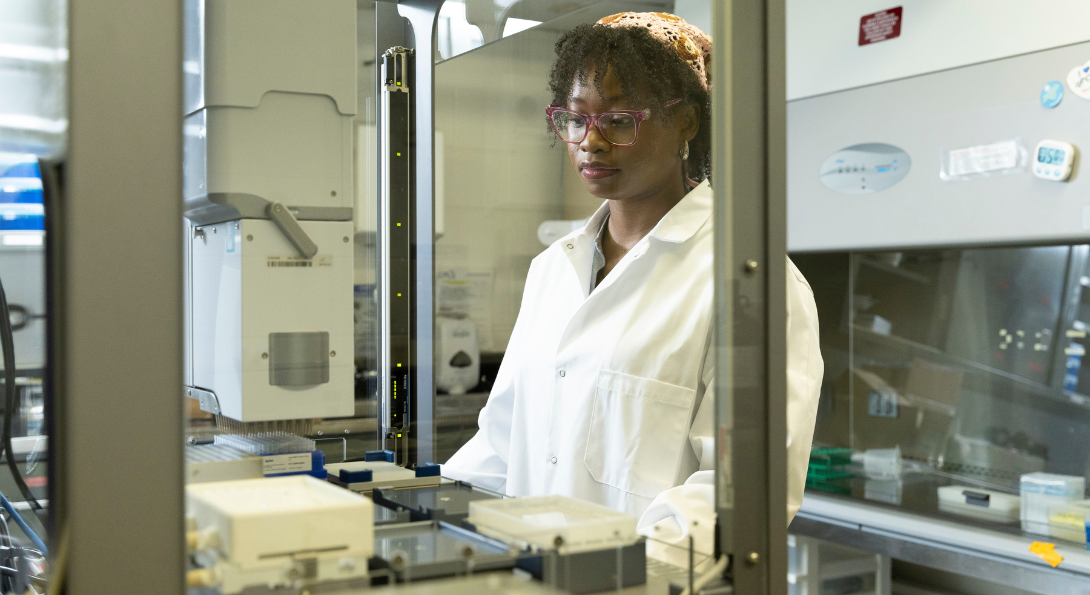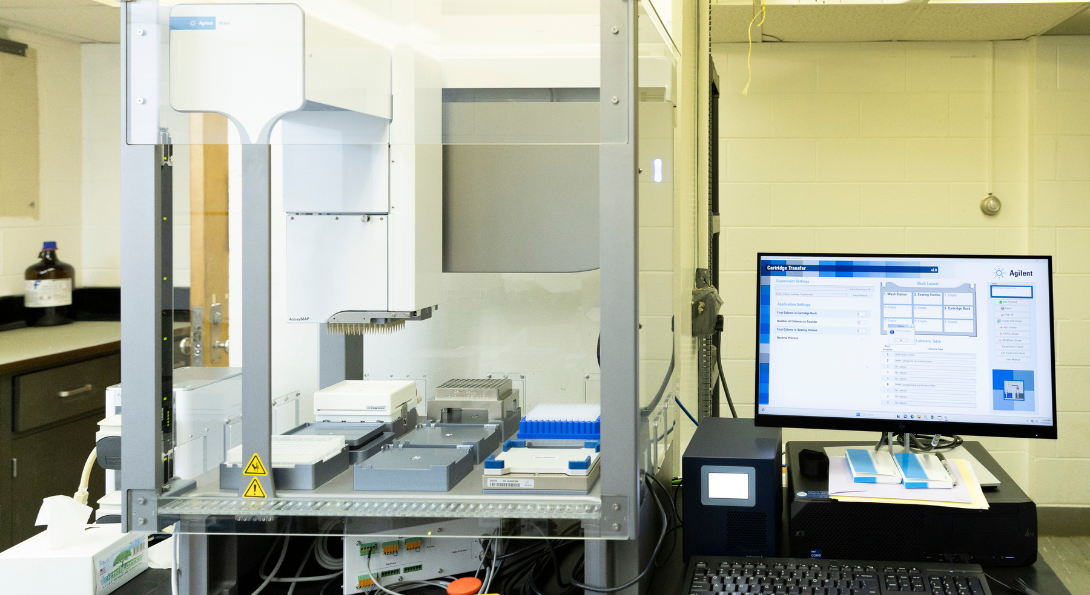UIC’s mass spectrometry core gives researchers a glimpse into the invisible molecular world

Mass spectrometry (MS; Mass Spec) is an analytical tool that researchers employ to measure the molecular weight via the mass to charge ratio of ions, which helps identify the chemical composition and structure of molecules. There is a wide range of applications for the findings, including proteomics, metabolomics, pharmaceutics and ionomics (environmental analysis), providing deep insights into biological processes at the molecular level and enabling advances in health, disease understanding and therapeutic development.
“Mass spec, right now, is one of the most important and popular techniques in scientific research,” said Hui Chen, director of UIC’s Mass Spectrometry Research Core (MSC).
The core is one of 13 in the UIC Research Resource Center that provide state-of-the-art, user-friendly facilities and services to support education, method development and new applications development. It offers full-service solutions, a unique experience from most other mass spectrometry cores, and includes accurate mass measurement, protein identification, metabolomics, lipidomics, proteomics, ionomics and other services.
“UIC’s mass spectrometry core embraces all types of mass spectrometry and applications of the technique,” said Stephanie Cologna, faculty advisor for the core. “Unlike other MS Cores, we do not just focus on one type of service such as proteomics or organic compound mass spectrometry.”
Many researchers generate their pilot data with UIC’s mass spectrometry equipment to submit grant applications and later return to complete their research. Each year, approximately 20 to 30 papers are published using the data from UIC’s Mass Spectrometry Core.
Currently, the core has 10 mass spectrometry instruments available for anyone who is conducting research or curious about how mass spectrometry can be used to support their work. Unlike at other mass spectrometry cores where trained researchers with extensive knowledge of the equipment operate and conduct the analysis by themselves, at UIC MSC, staff members provide comprehensive support to users, from consulting on sample preparation to data analysis.
“The user provides the raw sample and then we process from the ground up. So, we do all the sample prep, the data acquisition and data analysis for them,” Chen said. “We process the sample and provide the user with fully interpreted data, ready for publication or direct application in their research."
The equipment is available for UIC postdoctoral researchers, students and staff, as well as researchers from across the country.
mass spec

The mass spectrometry core is also a sub-core for an NIH-funded P30 grant with CACHET to perform analyses on public health data and engage local communities to address environmental concerns across Chicago.
“We have a library of assays at the fingertips for our environmental health scientists, and they’re always willing to develop new ones and bring them to the forefront,” said Gail Prins, PI of CACHET. “So, they’ve been very responsive to our needs. It’s been an excellent collaborative relationship that we’ve had with them, and I have nothing to say but great things about how they delivered to us.”
The core also aims to provide educational opportunities for UIC students and researchers.
“It’s beneficial for their research because they understand how the data is obtained and how it can be applied,” Chen shared. “In the future, if they have the opportunity to start their own labs, they can adopt and share this technique with new colleagues, helping to expand the mass spectrometry community.”
“The data analysis and the quality is really outstanding,” Prins added. “The UIC community needs to know that by working with our mass spec core, they’re getting high quality data sets; they’re getting them at very low costs, as compared to if they go to outside laboratories where the markup is high.”
UIC’s mass spectrometry core serves as a hub for mass spectrometry education, method refinement and innovative applications, meeting the dynamic needs of researchers across disciplines. Their staff are always looking to develop new collaborations.
“Reach out and talk to us!” Cologna said. “We would love to learn more about your project and the potential that mass spectrometry can play in achieving your research goals.”